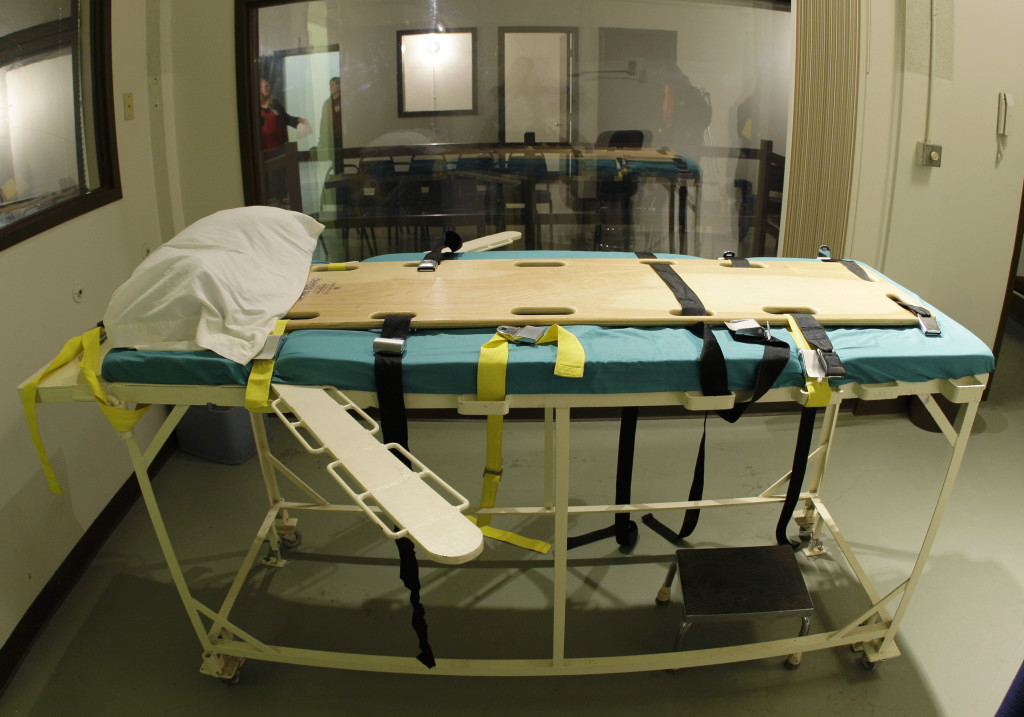Why the Death Penalty Is on the Decline

December 18, 2014
Share
Executions are at their lowest in 20 years, according to a new report by the nonprofit Death Penalty Information Center. Today, 32 states have capital punishment on the books, but many have begun to move away from seeking the ultimate penalty for serious crimes. This year, only seven states sentenced inmates to death, and executions were concentrated in three states — Texas, Missouri and Florida. Here are three reasons why the practice is dwindling:
Cost
Executions are expensive — about four times more than cases in which the death penalty isn’t sought, according to one 2014 estimate by the Kansas Judicial Council. Another study in Nevada found that death penalty cases costs about $500,000 more than cases in which the penalty isn’t sought.
Cash-strapped states are increasingly finding it difficult to justify spending so much money to put an inmate to death. In some states, county officials have had to raise taxes and trim their budgets just to cover the costs of a death penalty trial, according to a report in The Marshall Project today.
Methods
It’s also getting harder to stage an execution. Lethal injection drugs have run low in recent years since the European Union, which opposes the death penalty, banned the export of such drugs nearly a decade ago. To compensate, several states have begun experimenting with new drug cocktails, trying to keep the ingredients secret to avoid losing their new supply. But that means some states have tried drugs on inmates without knowing whether — or how — they would work.
In three executions this year in Ohio, Arizona and Oklahoma, inmates were left gasping and struggling as the drugs took effect.
In Oklahoma, the warden overseeing the process called the execution of Clayton Lockett a “bloody mess,” according to court documents uncovered by the Tulsa World. The warden meant it literally: One of several attempts to insert an IV apparently punctured an artery in Lockett’s leg, spattering blood around the chamber as the condemned man grimaced in pain and tried to lurch off the gurney. He died 45 minutes later.
At least 30 executions are already planned for 2015, including four in Oklahoma and six in Ohio, even though neither state has said that it’s found a way to resolve the problems it encountered this year. In Tennessee, where six inmates are scheduled to die, lawmakers have reinstated use of the electric chair as a method of execution if they can’t find enough drugs.
Doubts
Doubts about the fairness of the process continue to pile up.
In California this year, a judge declared the death penalty unconstitutional, due in part to lengthy and unpredictable delays in executions. More than 90 people have died on death row waiting to be killed.
“For most,” the judge wrote, “systemic delay has made their execution so unlikely that the death sentence … has been quietly transformed into one no rational jury or legislature could ever impose: life in prison, with the remote possibility of death.”
The state is appealing the ruling.
Racial disparities are also still a problem. The death penalty is disproportionately applied to black men, and people are much more likely to be sentenced to death for murdering whites than blacks, even though blacks are more often murder victims.
And people awaiting execution continue to be exonerated. This year, seven men on death row were cleared of all charges, the most since 2009. All but one are African-American.
In February, Washington Gov. Jay Inslee (D) imposed a moratorium on executions for the nine men on death row in his state, saying the use of the death penalty is “unequally applied” and sometimes depends on the budget of the county where the crime occurred. He added that 60 percent of people on death row in the state have had their sentences overturned since capital punishment was put in place in 1981.
“Equal justice under the law is the state’s primary responsibility,” he said. “And in death penalty cases, I’m not convinced equal justice is being served.”
Related Film: Death By Fire
FRONTLINE investigates the case of Cameron Todd Willingham, who was convicted of murdering his three young daughters by setting their home on fire while they slept. Willingham was executed by the state of Texas in 2004, despite serious doubts about his guilt.

Latest Documentaries
Explore
Policies
Teacher Center
Funding for FRONTLINE is provided through the support of PBS viewers and by the Corporation for Public Broadcasting, with major support from Ford Foundation. Additional funding is provided the Abrams Foundation, Park Foundation, John D. and Catherine T. MacArthur Foundation, Heising-Simons Foundation, and the FRONTLINE Trust, with major support from Jon and Jo Ann Hagler on behalf of the Jon L. Hagler Foundation, and additional support from Koo and Patricia Yuen. FRONTLINE is a registered trademark of WGBH Educational Foundation. Web Site Copyright ©1995-2025 WGBH Educational Foundation. PBS is a 501(c)(3) not-for-profit organization.



















